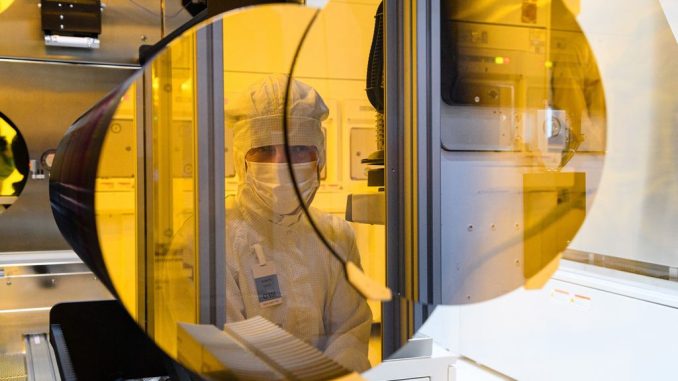
Introduction
In the coming years, the European Union will have to hold its own in the current geopolitical power struggle: who has the best computer chips? Whoever has it has the digital and military power. Today the European Parliament is voting on a law that should strengthen Europe’s position with investments worth billions.
Because investing happens all over the world. This involves many tens of billions of euros. Not only in the EU, but also in the US, China, and Japan, for example. The sense of urgency is widely shared.
Building a Strong Position
“This is super important for Europe,” says Luc Van den Hove, CEO of the leading research institute Imec in Leuven. “A strong plan needs to be built, alongside what the US and Asia are doing, so that Europe strengthens its position across the chip chain.”
The new law can count on support in the Netherlands, according to a tour of Dutch companies in the chip industry. “The fact that the law is in place is a very good development,” said Maurice Geraets, executive director at chip manufacturer NXP. “We have built a worldview where everyone is nice to each other, but that world is an illusion, so it makes sense for Europe to invest more in this crucial industry.”
Even before the law, the Chips Act, is completely finished, a lot is already happening. Most notable is the construction by chipmaker Intel of new factories worth tens of billions of euros in Germany, in exchange for billions in government support. There will also be a factory in France that will cost billions. It is one of the so-called ‘pillars’ of the law.
Greater Role in the Chip Sector Worldwide
The EU wants to become less dependent on other parts of the world, where by far most chip production now takes place. In fact, the EU wants a bigger slice of the global chip pie, 20 percent of the market is the target, more than doubling. Whether that is feasible remains to be seen. Especially since other parts of the world are also investing heavily.
The EU also wants to be able to intervene in the event of a new chip shortage, for example by asking factories to prioritize certain production.
In addition, the law focuses on innovation, research, education, and creating space to test new types of chips. All in all, the EU counts on €43 billion in public investment, a third of which comes from the EU itself. The rest must be covered by the Member States.
Support and Investment
NXP does not plan to build additional factories in Europe. The company wants to invest in more research. Geraets emphasizes that it is not certain in advance whether a company will also receive money on the basis of the Chips Act.
Chip machine maker ASML, which only wants to respond to questions in writing, calls the new law “recognition” of the need to build more production capacity in Europe. The same applies, for example, to test production and chip design.
Ivo Raaijmakers, ASM’s technical boss for many years and an advisor to the board since last year, hopes that the law will mainly create momentum. “It is the starting point to get advanced factories back in Europe and build strengths.” Together with Philips, ASM stood at the cradle of ASML.
Incidentally, Hamed Sadeghian, CEO of Nearfield Instruments, would like to speed up the legislation. His company is still young: it was founded in 2016 and focuses on controlling the production process of advanced chips.
Does all this really make Europe more independent? It could be years before that becomes clear. As far as ASML is concerned, there must ultimately be “healthy interdependence”. And the company itself is the best example of this for Europe.
A Special Project
Not only must money be released via the Chips Act in the form of funds at EU level and with Member States, but there is also a so-called special project (IPCEI) aimed at the chip sector. In this case, Europe-wide it concerns 8.1 billion euros in public money from the member states.
On top of that comes another 13.7 billion euros from companies. The Dutch cabinet is investing 230 million euros, the distribution over the five projects in total is not yet known. ASML, NXP, and Nearfield Instruments all participate in this.

Be the first to comment